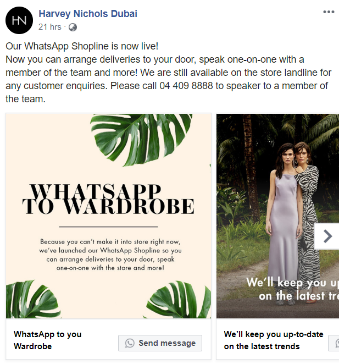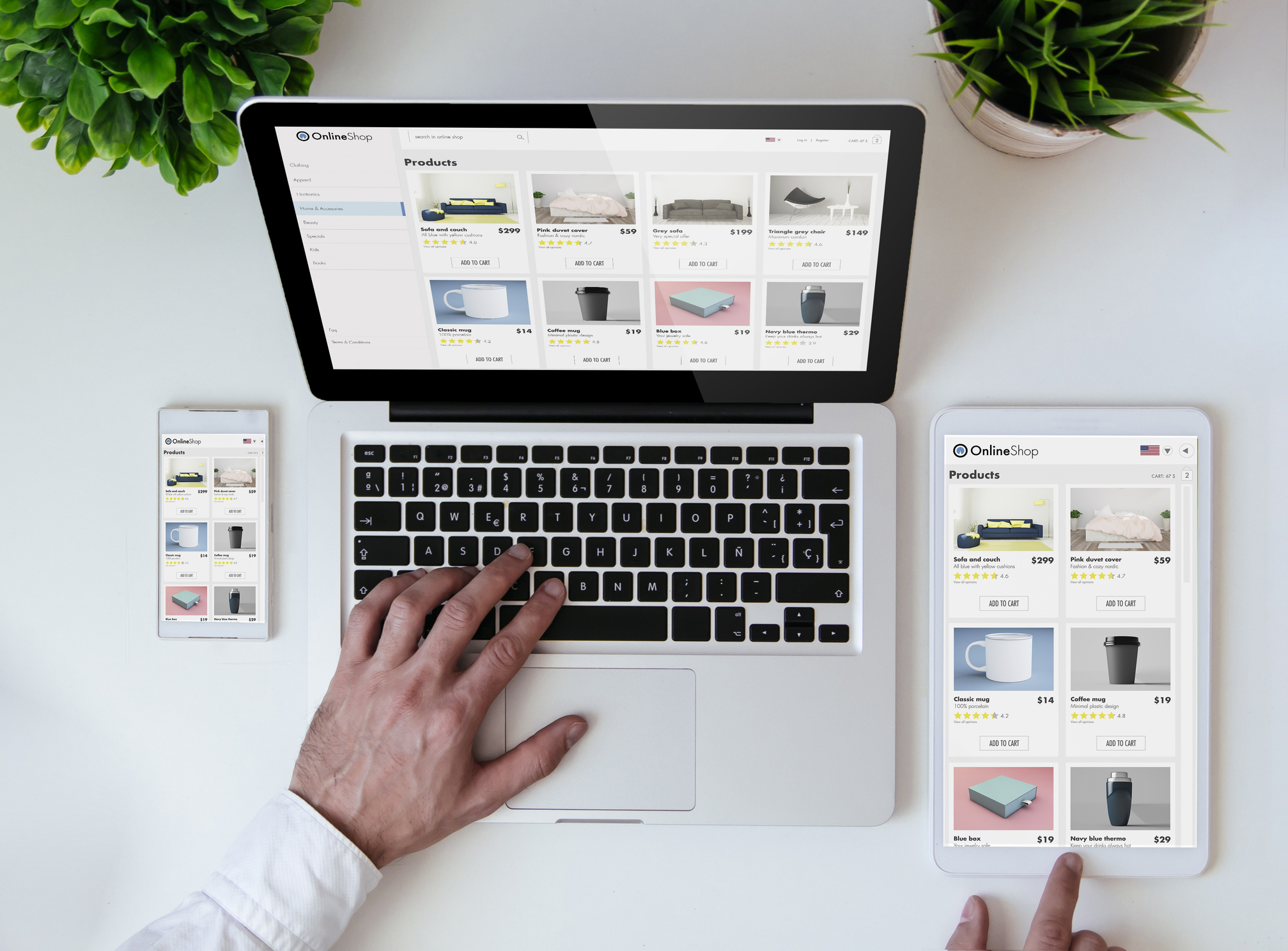This article first appeared in the May 2020 edition of Images Retail ME.
As non-essential stores close and social distancing measures keep people confined, Stefanie Cunningham, OMG Transact MENA’s General Manager, explains how to quickly move into ecommerce and generate online sales
The lockdowns implemented by Middle Eastern countries are having a significant impact to their economies. But some businesses, especially eCommerce ones, have seen explosive growth: Instashop’s mobile app downloads are up 70%+; Mumzworld is reporting an increase of 800%+ in demand; and Carrefour UAE is exceeding maximum capacity in online grocery deliveries. Essential categories like home cleaning, hygiene and groceries have logically seen a huge spike in demand. But as the world now begins to settle into its ‘new normal’, categories like home fitness and skincare lotions are beginning to scale online, with rises in demand of 307% and 79% respectively. A recent Ipsos study highlighted 48% of Saudi consumers were purchasing products online more frequently than they would usually do offline.
The growth of eCommerce in the Middle East, which was already forecasted to be the fastest globally with a CAGR of +28% to 2022, is set to accelerate further. Companies with existing eCommerce operations in place can redirect their focus to their online channels to weather this storm. But what if your brand currently only operates offline? Here are three ways to pivot to ecommerce quickly:
- Activate online ordering through your existing digital footprint
A quick and simple solution is to let your existing or potential customers know that they can place orders by phone, WhatsApp, social or email. Leveraging your store staff or customer service teams to receive inbound orders and supply local consumers quickly using on-demand couriers services like Quiqup.
 Harvey Nichols in Dubai did just that with its ‘WhatsApp to Wardrobe’ service. Consumers can browse the store’s product range on their website or social, liaise with Customer Service via Messenger, phone or WhatsApp, place an order and enjoy quick delivery, paying on arrival.
Harvey Nichols in Dubai did just that with its ‘WhatsApp to Wardrobe’ service. Consumers can browse the store’s product range on their website or social, liaise with Customer Service via Messenger, phone or WhatsApp, place an order and enjoy quick delivery, paying on arrival.
- Leverage online marketplaces
Online platforms like Amazon, Noon and Deliveroo allow brands to leverage their existing consumer traffic and established ecommerce solutions to begin selling at speed and scale. Operating as either a vendor or merchant, the activation process is simple and there are plenty of solutions no matter the category.
Emaar’s Dubai Mall recently launched its virtual showroom on Noon, providing online sales opportunities on their leading home-grown marketplace, to support its tenants after the mall was forced to close. .
With the lockdown, restaurants visits have come to a halt, but home deliveries allow outlets to continue to trade. Within just 48 hours, the Dubai based platform Support Local Restaurants launched and onboarded 300 restaurants, providing them with cost-effective marketing, ordering and delivery capabilities. We’ve also have seen grocery retailers tapping into food delivery apps, like Danube with Hungerstation, to scale their online sales. The automotive industry traditionally sees 98% of sales occurring offline. To counter the lack of showroom traffic, Chinese car brand Geely leveraged the Tmall marketplace to continue to market and take deposits for cars online. It also provided test drives via online, augmented reality experiences.
- Launch your own online ecommerce-ready platform:
Activating your own direct-to-consumer ecommerce (DTC) proposition can be achievable in the short-term if you leverage a ‘plug and play’ provider like WooCommerce, Shopify or Squarespace. They provide readymade templated websites and simplified interfaces allowing you to launch your catalogue of products or range of services with relative ease.
Georges Of Dubai, a local gifting and homewares brand in Dubai, leverages Shopify’s quick to launch ecommerce platform to sell to Middle Eastern consumers whilst their offline store is closed. They provide free delivery through Fetchr’s courier services, emphasizing their sanitized, contactless deliveries through their social channels.
Before investing in your own DTC ecommerce venture, you need to review your business model and its suitability for this channel. To ensure a winning DTC proposition, think about whether your brand can sell online as it currently is or whether you need to adapt. Here are some considerations:
- Profitability: Do the price points of your product ranges take into account the production, delivery, payment and marketing investments associated to hosting an online platform? Or should you look to bundle your products or set a minimum shipping fee to increase your basket spend?
- Accessibility: Are your products already in wide distribution with strong online competition? Should you look to add a point of differentiation such as personalization or accelerated delivery options?
- Proposition: Does your offering meet a current consumer need or present a solution to their problems? How can you provide relevance to consumers under this current climate in your marketing, merchandising and communications?
- Business Model: Can you adapt your traditional business model, such as providing webinars, services or subscription models?
Winning in eCommerce, just as in offline retail, requires you to acquire, convert and retain consumers at a cost respectably lower than their average lifetime value. It requires a talented team or partnership to ensure investments into your online channel provide sustainable returns, underpinned by data to thoroughly measure, test and scale your business based on insights, not opinions.
Now, more than ever, is the time to ensure you have a balanced channel strategy in place by embarking into setting up your online channel in MENA. This will require time and investment, but this is an essential step towards future-proofing your business with the agility to adapt.
The age of digital disruption has and will impact all verticals and channels. It is therefore essential to ensure consumers can transact with your company seamlessly across their end-to-end journey whether this is online or offline.
Stefanie Cunningham is the General Manager of OMG Transact MENA, Omnicom Media Group’s strategic eCommerce consultancy.


